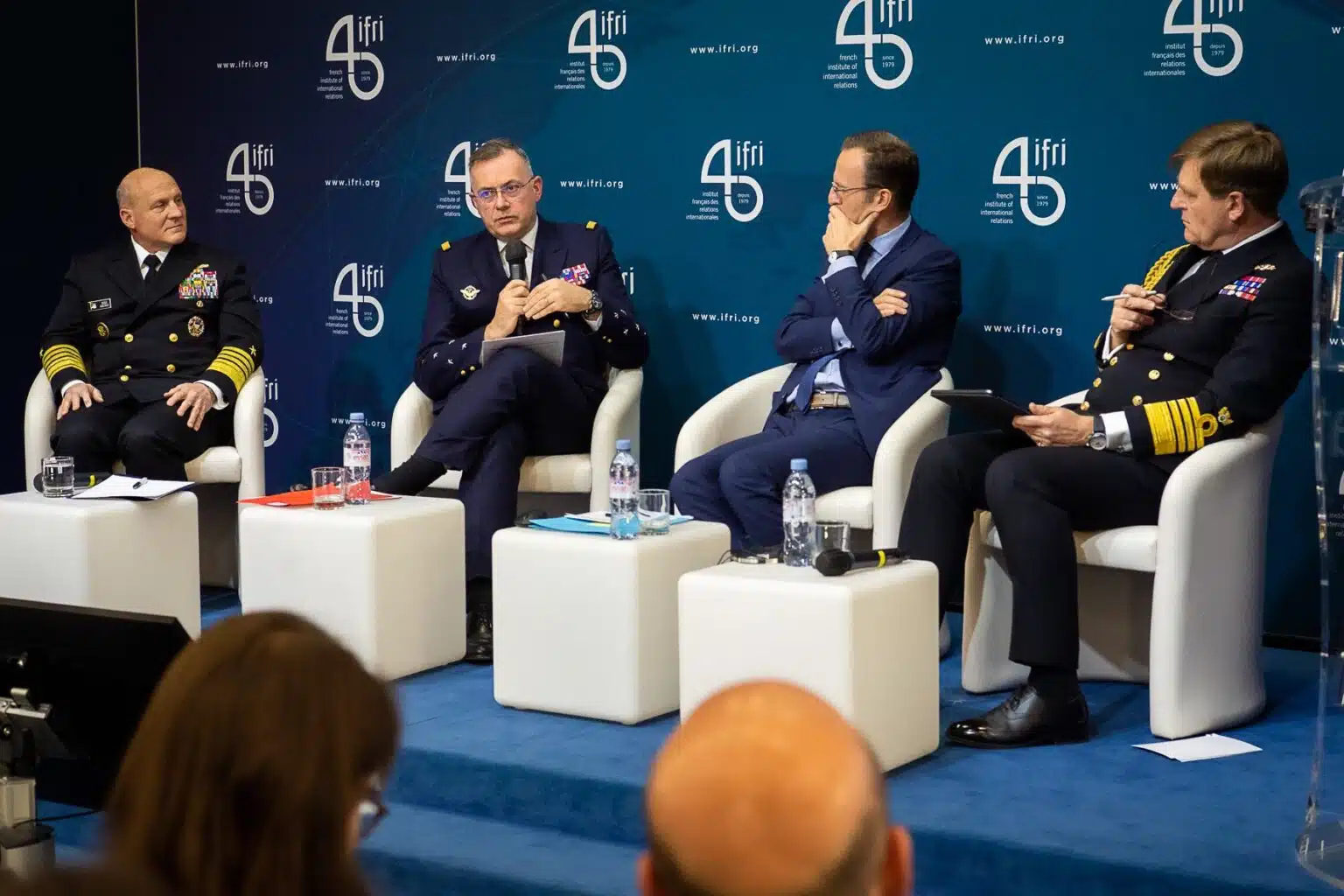
The lessons emerging from the war in Ukraine for Western countries and their navies, and for maritime matters more broadly, ranging from the strategic to the tactical levels, the chiefs of the French, U.K. and U.S. navies told the recent inaugural Paris Naval Conference.
“One thing we should all take away is the importance of the will to fight,” U.S. Chief of Naval Operations Adm. Mike Gilday said during a press briefing with the three chiefs following the conference.
Gilday underscored the depth of the Ukrainians’ desire to “fight for their freedom … down to every single person in their society.”
Adm. Pierre Vandier, the French navy’s chief of staff, noted that while the war in Ukraine seems based around a land campaign, it has a significant maritime dimension, while speaking at the Jan. 18 conference along with Gilday and U.K. Royal Navy First Sea Lord Adm. Ben Key. Amongst a range of strategic-level maritime challenges in the Black Sea region, Adm. Vandier pointed to the importance of keeping open the port of Odesa in southwestern Ukraine.
“It was very important to have this [as a] free port,” he said.
Key, who also serves as the British chief of the naval staff, said that despite the heavy land emphasis, the ability to keep Odesa has strong maritime implications.
“The loss of Odesa would have strangled the Ukrainian economy because of the inability to export grain,” Key said. “That would then have created huge food shortages in countries many thousands of miles away from Ukraine […] Even in something that is being contained to a small region, the maritime implications of not having secure sea lines of communication are considerable and will impact the international community.”

At the operational level, there are a number of maritime activities underway, including maritime patrol, amphibious forces operations, mining and countermining, blockades and unmanned vessel use, Vandier said.
The war in Ukraine saw the use of USVs in an offensive role, with USVs contributing to strikes. In addition, technologies like cruise missiles have been used in strikes both from sea to shore and shore to sea. Several warships have also been lost.
“[This is] nothing new, but the range of what has been done shows the dimension of the maritime aspect of this war,” Vandier said.
During the conference, Gilday discussed how the Ukrainians are learning lessons themselves, and how their fighting spirit is even filtering down to the tactical level.
“The Ukrainians are learning war while they’re fighting the war, and they’re doing so in a way that is so agile, and so flexible, and so nimble,” Gilday said. “They’re leveraging technology down at the tactical level. This goes down to the soldier on the battlefield.”
“For all our navies and our sailors, that’s the kind of spirit we want,” he continued. “That brings an asymmetric advantage to our navies that perhaps puts you in a position of advantage in a fight.”
A version of this post originally appeared on Naval News. It’s been republished here with permission.





